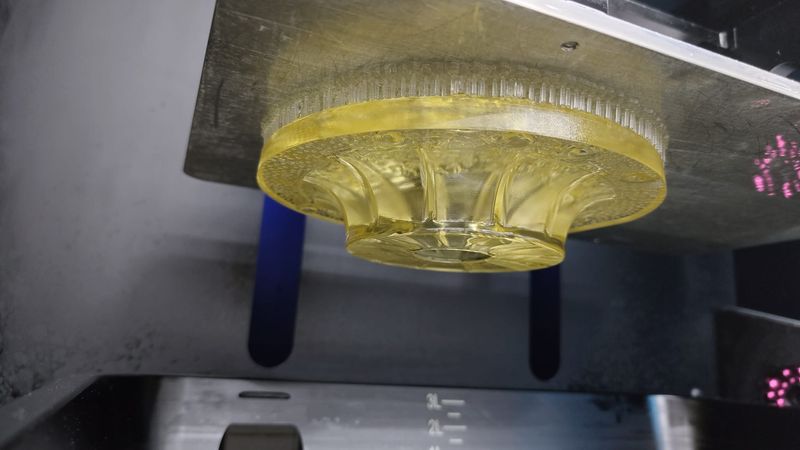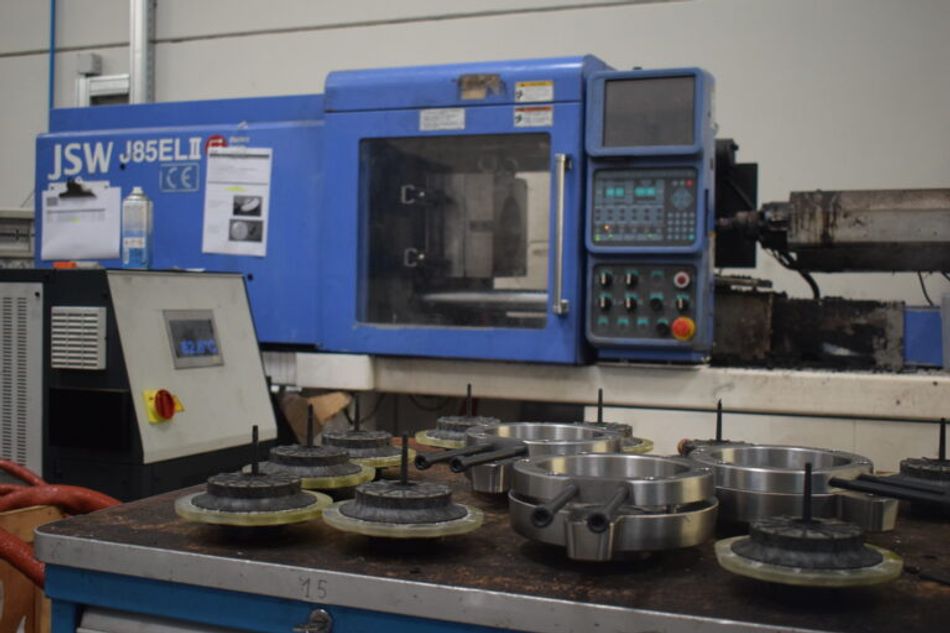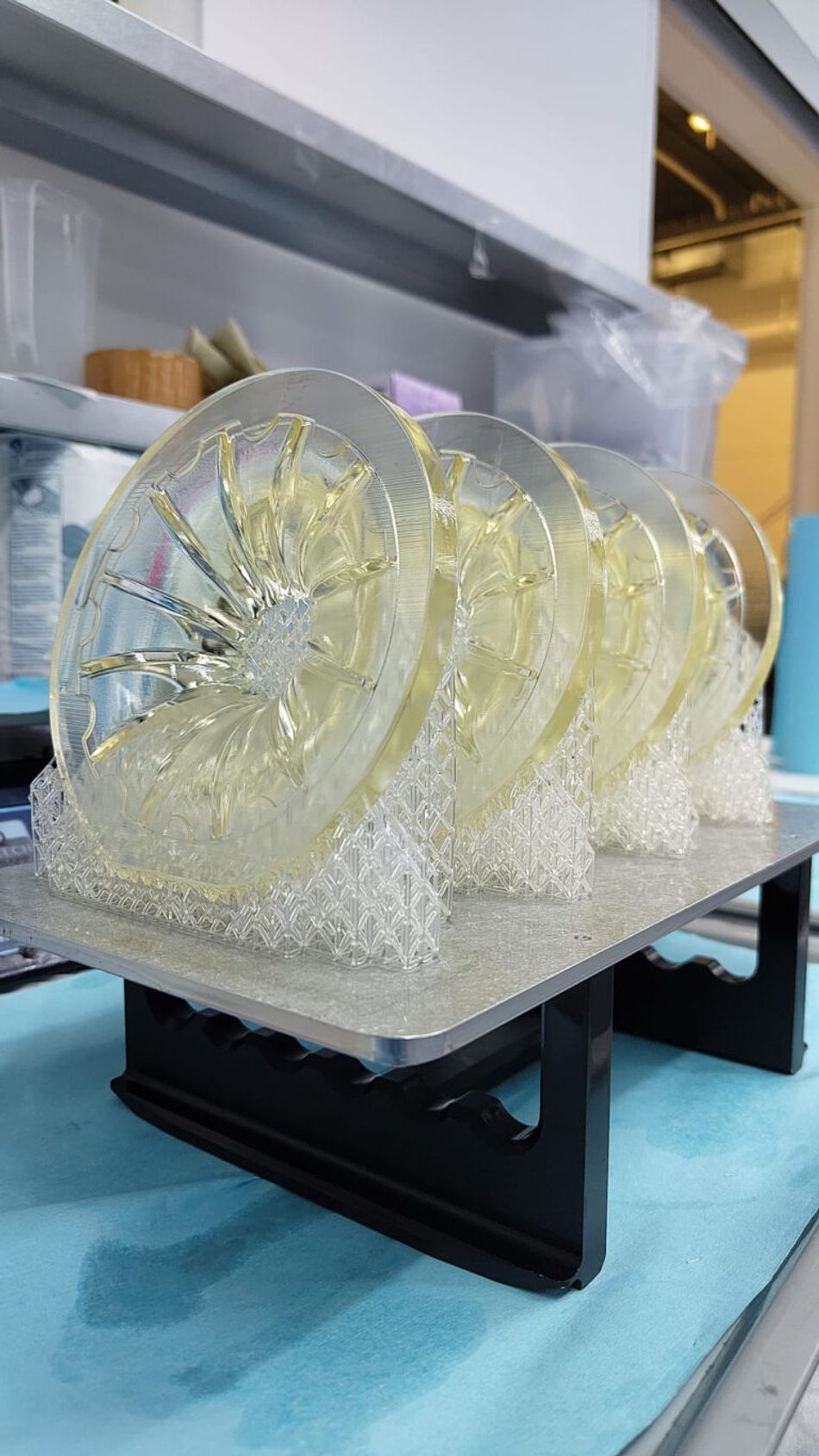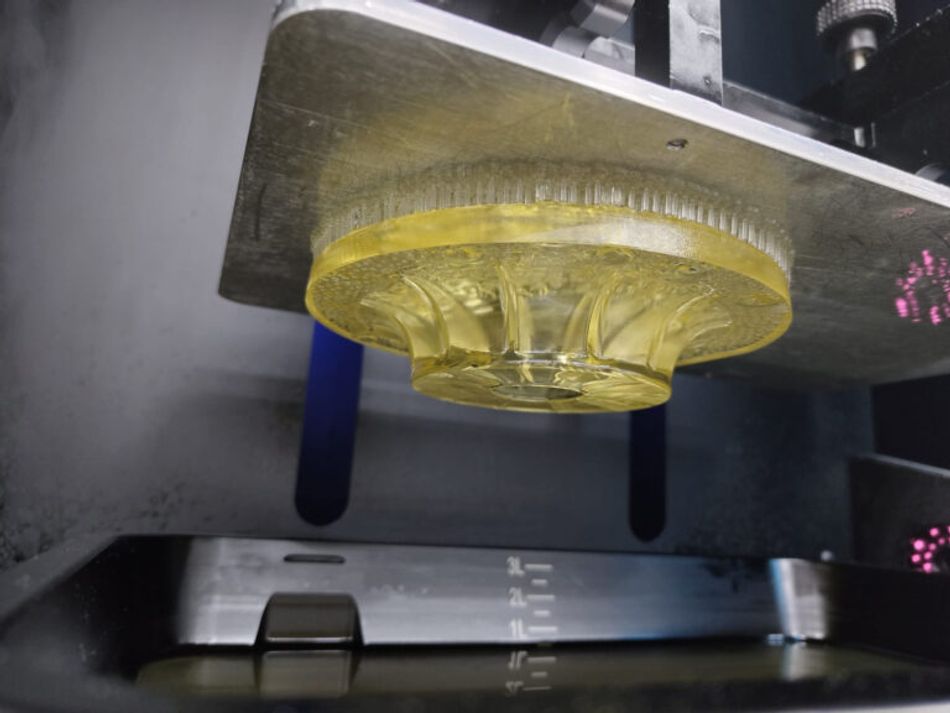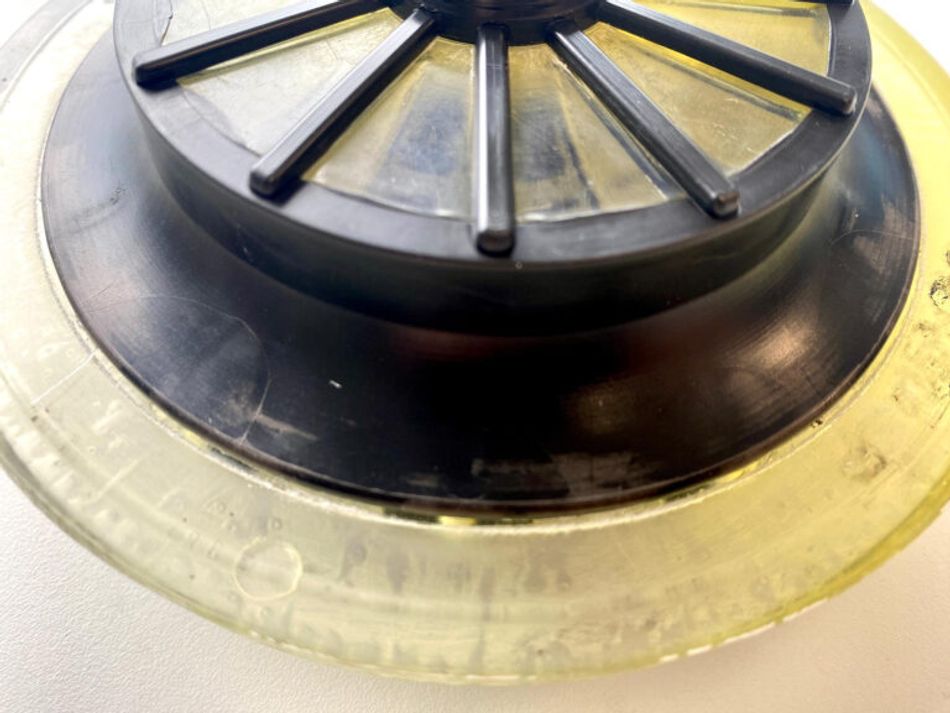Aitiip Integrates Freeform Injection Molding to Lower Weight and Reduce Production Costs
Complexity is a cost driver in most manufacturing processes, and manufacturers have been looking to additive manufacturing as a way to simplify the manufacturing of complex objects.
This article was first published on
nexa3d.comAitiip is a leading Spanish research and development institute, and serves companies in the aeronautics, automation, industrial and packaging sectors. The institute possesses strong platforms for the characterization of materials and processes and is known as a powerful integrator of technologies, which is constantly on the look-out for the next transformative technology. A year ago, Aitiip implemented an NXE 400 printer platform from Nexa3D, to explore integrations of additive manufacturing and injection molding.
Liebherr – a leading German manufacturer of industrial equipment, represented by their aero branch in Toulouse, has collaborated with Aitiip to meet the goal of replacing a metal flange wheel with a flange wheel made in recycled injection-molded high-performance polymer. The ambition: to develop a technology that allows the manufacture of flange wheels for the cooling systems of the aeronautics with 100% recyclable materials. Recognizing that the performance of the chosen polymers would be critical to quality, and that some part features would be more cost-effective to realize with additive manufacturing, Aitiip turned to the NXE 400 and Freeform Injection Molding to meet customer expectations.
The challenge: Replace metal flange with carbon-filled PEEK, requiring high performance and design complexity
Complexity is a cost driver in most manufacturing processes, and manufacturers have been looking to additive manufacturing as a way to simplify the manufacturing of complex objects. In the case of the flange wheel, design complexity challenges were compounded by the ambition to replace metal with a carbon-filled PEEK, a high-performance thermoplastic notoriously difficult to prototype.
In the manufacturing of PEEK parts, process parameters need to be tightly controlled to achieve target performance, and Liebherr worked with Aitiip to develop and verify a manufacturing process that would meet the following requirements:
- High-speed manufacturing process that will lead to 30% cost reductions
- Recyclable materials
- Light-weighting – with a goal of reaching a 40% weight reduction
- One-shot manufacturing
The collaboration was carried out within the framework of the INN-PAEK project, which was funded by the Clean Sky 2 Joint Undertaking under the European Union’s Horizon 2020 research and innovation programme under grant agreement Nº 101007865.
“The quality, repeatability and freedom offered by the Nexa3D printers and the xMOLD resin has enabled us to create and validate an entirely new on-demand manufacturing paradigm.”– Pablo Murillo, Aitiip
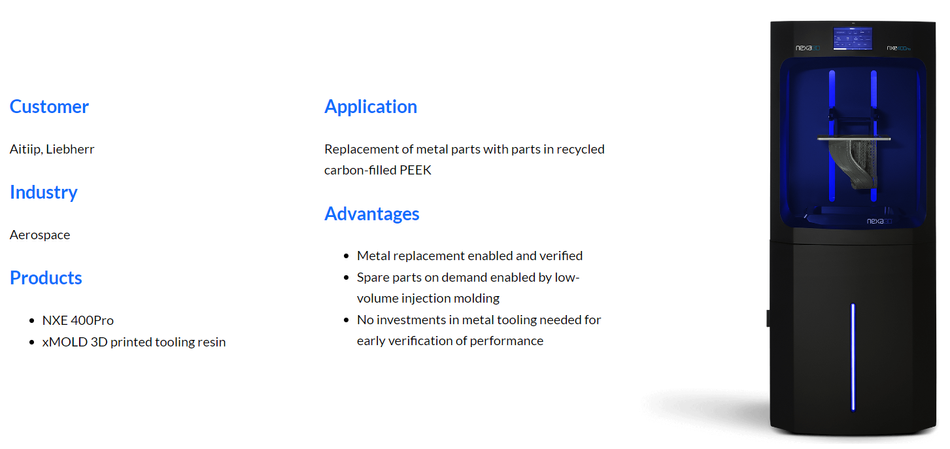
The solution: Integration of Additive Manufacturing and Injection Molding
The part to be manufactured was a complex flange wheel with a challenging load case. To achieve the required part performance and manufacturing speed, injection molding was chosen as the manufacturing method. However, the complexity of the flange wheel would be impossible to achieve with conventional metal tooling.
In order to meet Liebherr requirements, Aitiip decided to fully exploit the capabilities of the NXE 400 system in a highly innovative approach:
- Using the NexaX Pro software, Aitiip created a unique printer profile to enable the printing of parts with superior surface quality
- The impeller body inner geometry was realized with a single soluble 3D-printed FIM insert in the Nexa3D xMOLD printed tooling resin
- One particular part feature was realized with an insert printed in the Nexa3D xPEEK material that was mounted in the soluble insert before injection to enable its full integration into the injection-molded impeller part.
- The 3D-printed FIM insert, with the xPEEK feature, was mounted in a mold cavity. Subsequently, the carbon reinforced PEEK material was injected to fill the cavity, and the 3D-printed FIM insert was dissolved to release the final PEEK part
The benefits: On-demand injection molding of complex impeller enabled and verified
Freeform Injection Molding, combined with high-performance xPEEK inserts, enabled Aitiip to meet manufacture a high-performance recycled injection-molded metal replacement part. Furthermore, Aitiip could verify the performance of the part before investments in tooling had to be made.
Early Verification: The use of 3D-printed xMOLD resin tooling enabled Aitiip to manufacture a number of test parts, and to use these parts to verify key design and performance aspects.
Cost and time savings: FIM has allowed Aitiip weekly iterations, in consequence reducing the project frame time reaching better and more advanced results in comparison to traditional mold making processes.
Also, the research cost has been drastically reduced, making more efficient the use of resources (time, cost, material and most importantly human resources) while increasing freedom of design.
Seamless scalability: The first iterations were carried out in smaller 3D-printed molds to ensure shortest possible iterations at lowest possible costs. Once the part design had been validated and part performance had been verified, Aitiip proceeded to implement a metal cavity to reduce unit costs while still using a 3D-printed xMOLD core and an xPEEK insert to avoid costly investments in complex slider functionality. The resulting mold concept meets customer requirements at the lowest achievable costs of ownership
Rapid iterations: The ability to rapidly and cost-effectively test out a number of tool concepts was a key element in the ultimate success of the project. The complex design of the part, combined with the complex processing of the carbon-filled PEEK, and with the added challenge of integrating a 3D-printed xPEEK insert in an injection-molded part, would have made this project very hard and costly to realize with conventional metal tooling, due to the substantial investments involved
Customer Impact: Metal replacement, increased recyclability enabled
Aerospace parts manufacturers are met with rigorous part quality requirements, and lighter weight is always an objective. In addition, manufacturers seek ways to increase the implementation of recycled materials.
Liebherr wanted to explore a lighter-weight alternative to the metal that was used in the manufacturing of a high-performance flange wheel, and collaborated with Aitiip to develop and verify a part design and manufacturing process that would enable Liebherr to migrate from metal to recycled polymer.
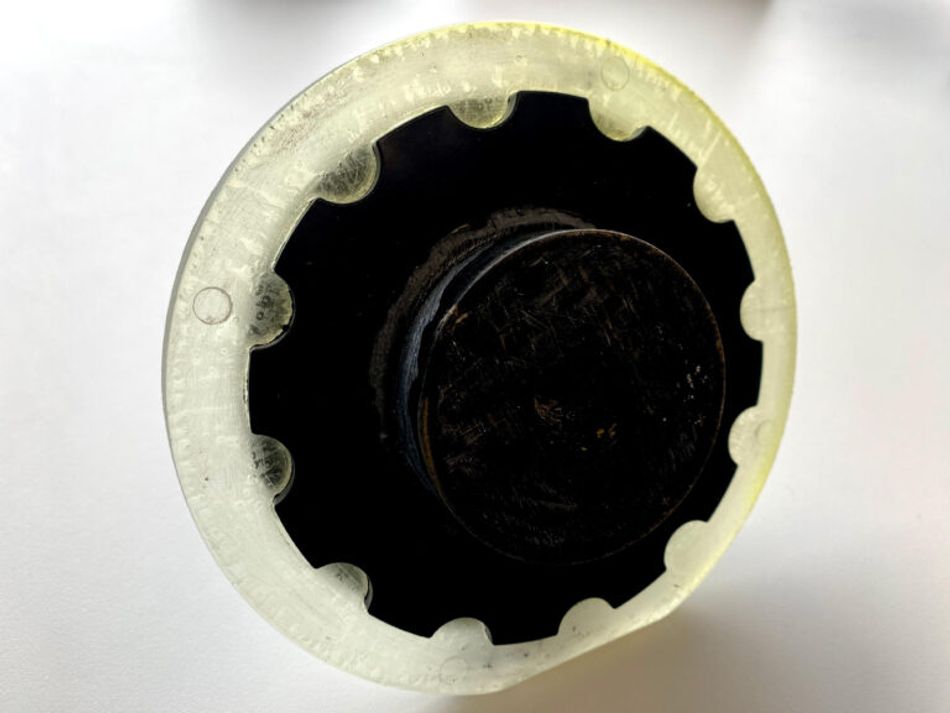
In successfully completing this project, Aitiip provided Liebherr with the following key output:
- A verified protocol for the manufacturing of a specific challenging spare part which allows Liebherr to reduce costs, lead-times and supply chain vulnerabilities
- A reference study demonstrating the performance achievable with novel 3D-printed injection mold tooling concepts and novel 3D-printer resins
- A reference model for high mix / low volume product development, scale-up and after-market servicing based on an on-demand manufacturing platform, as an alternative to on-stock supply chain paradigms
- To learn more about Freeform Injection Molding and the experience of Aitiip, please consult the INN-PAEK website. You may also want to download the 3D Printed Tooling Design Guide or reach out for more information.
